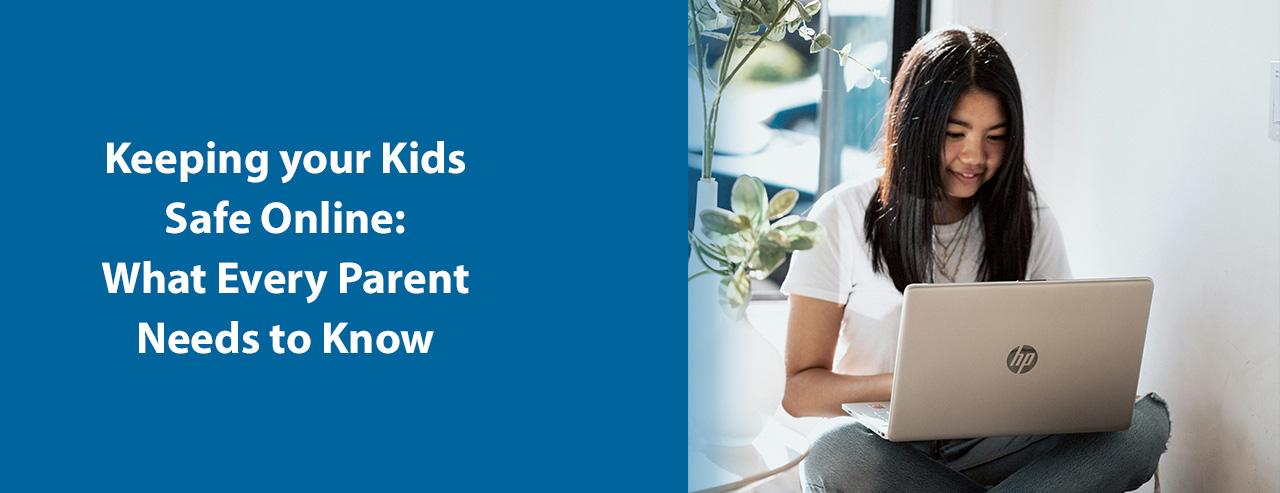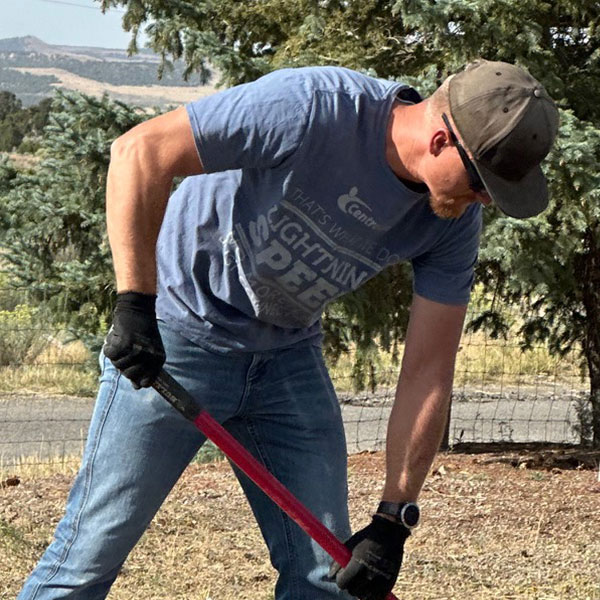
I’m a new dad. I have an 18-month-old daughter at home, she’s growing so fast I feel like I come home from work to a new little girl every day. She means the world to me, I love seeing her grow up.
As her dad, I’m always concerned about her safety. I made sure every bookshelf, coffee table, etc., had rubber bumpers so that when she fell, she wouldn’t hurt herself. She falls on the sidewalk and scuffs her knee often. Our family dog runs past her and knocks her over daily. Before long, she’s going to be learning to ride a bike. Believe me when I say I will make sure she is wearing a helmet, knee pads, and elbow pads, and that bike will have training wheels on it. I want to make sure my daughter is safe.
Thirty years ago, that’s what keeping a child safe was. But ever since I saw this video on this video on Bark's Youtube Channel, I realized that keeping my daughter safe is going to take a whole lot more.
The video documents a team of Bark employees who create fake online personas of pre-teen girls and keep track of the predatory messages they receive. It’s frightening not only how many messages came to these fake personas but how quickly they did.
“The brutal reality is that a predator doesn’t have to be in the same room, building, or even country to abuse a child.” (Bark's Video)
They are on every social media site (Instagram, Snapchat, Tik Tok), they are in online gaming communities (Fortnite, Roblox, Discord), and on live streaming platforms (Twitch, YouTube) and that’s only scratching the surface.
Sadly, many children who are being abused online keep it hidden. They keep it hidden because they don’t want to be ashamed; they don’t want to be blamed. They can be embarrassed, scared, or have any number of emotions that would lead them to keep it a secret from their parents.
As a parent, I never want my kid to be abused. I recognize that the world my daughter will enter soon is very different from the world I was a teenager in. My goal as a parent is to have a relationship with my daughter so that she would feel comfortable coming to me with any problems she is having.
Remember, no amount of legislation or law enforcement will ever replace informed, engaged parents.
So what can you do? Follow Bark’s 10 Tips To Protect Kids from Online Predators:
- Have an open conversation about what an online predator is.
Any child who is online, no matter the age, should know what to watch out for and when to go to their parents. Online predators are everywhere and come in many shapes and forms. Not all of them are strangers, either. Known and trusted people can be predators, too. - Teach your child to limit the personal info they share
Most children know they shouldn’t share their full name, address, and phone number anywhere online. However, other personal information should also not be shared online. Has your child ever posted their class schedule on social media to see how many classes they have with their friends? That is information a predator can use against them. Be sure to educate your kids about what they shouldn’t share anywhere online. - Set up ground rules to never meet in person.
Help your children understand that it is never safe to meet with a stranger in person. Online predators are extremely good at concealing their identity, so your child may not be prepared for who they are actually meeting. - Educate your child on common predator tactics.
Manipulators like online predators rarely cut straight to the chase. They have strategies to get their victims to trust them before the abuse starts. Teach your child what “grooming” and “sextortion” are and how predators use those tactics to get what they want. - Establish a judgment-free zone.
Make sure your child knows that their safety is your number one priority and that when they come to you, they are coming to a judgment-free zone. If a child is scared they’ll be blamed or get into trouble for messages they are receiving, they are likely to continue to be abused. - Watch out for warning signs.
Is your child being secretive with their device? Are they spending more time online than usual? Are they on an app you don’t recognize? Any of these can be signs that your child is engaging with an online predator. Communicate with them that you are worried about their safety and ask them to open up to you about changes in their behavior. - Be aware of the games, apps, and websites your child is using.
Talk to your child about what social media sites they’re on, and ask them what games they’re playing. Keep up to date on the latest trends, slang, and popular apps. If you don’t know how to keep up with those, Bark's Blog is a great place to start. - Encourage them to report unwelcome behavior immediately.
Be clear with your child about when they should come to you and share unwelcome messages. For example, “If a stranger ever asks you to send a photo of yourself, please let me know immediately.” - Help them with privacy settings
Talk with your child about the privacy settings on their online accounts. Make sure their profiles are private on any platform that allows them to. - Use a parental control tool like Bark.
Parental control tools like Bark are a fantastic way to keep up with what your child is doing online. These tools track messages, posts, and more to keep your child safe online. When Bark detects a danger on your child’s device, you are immediately notified and provided research-backed tips on how to deal with the situation effectively. CentraCom believes that parents need this tool so strongly that they are offering the Bark service for substantially less. You can get Bark protection today through CentraCom. Call us at 1-800-427-8449 to get signed up.
My child’s safety will always be my number one concern, especially online. It makes me so happy to know that there are resources available to me as a parent to help keep her safe everywhere she goes.




